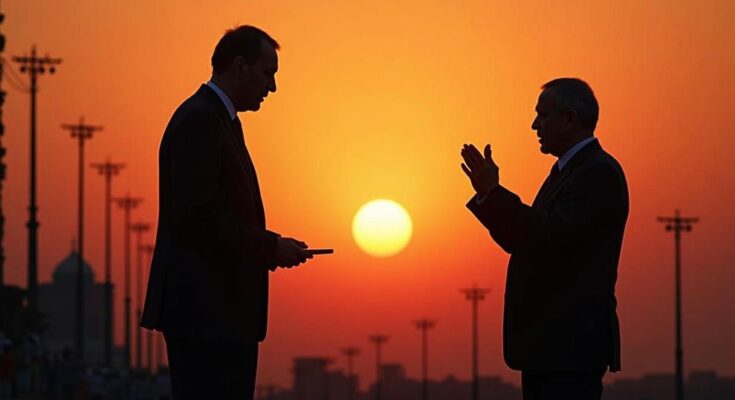In a recent address at the UNGA, Turkish President Erdogan notably omitted Kashmir, signaling a potential shift in Turkey’s diplomatic approach that may favor strengthening relations with India and pursuing BRICS membership. This has particularly unsettled Pakistan, which has historically relied on Turkey’s support regarding Kashmir, raising concerns about future diplomatic alignments in the region.
In a notable departure from previous statements, Turkish President Recep Tayyip Erdogan did not mention Jammu and Kashmir during his address at the United Nations General Assembly (UNGA). This omission has been interpreted as a significant shift in Turkey’s diplomatic stance, alarming officials in Pakistan. Turkey’s decision appears to align with its aspirations to strengthen relations with India and pursue membership in the BRICS alliance, which is viewed as a counterbalance to Western influence. Historically, Erdogan has consistently addressed the Kashmir issue in his annual UN speeches since 2019; however, this year’s speech marked a departure from that pattern. In light of these developments, Pakistani officials, who have relied heavily on Turkey’s support regarding Kashmir, have reacted with caution. Despite the omission, they urge observers not to draw hasty conclusions about Turkey’s commitment to the Kashmir cause. A spokesperson for Turkey’s AK Party acknowledged their interest in joining BRICS, emphasizing the importance of this membership process in their diplomatic strategy. Furthermore, even amidst ongoing discussions regarding various regional issues, including Gaza, Prime Minister Shahbaz Sharif’s recent meetings with Erdogan did not prioritize Kashmir. The evolving geopolitical landscape suggests that Turkey is attempting to establish a more balanced foreign policy, increasingly leaning towards India while maintaining historical ties with Pakistan. The implications of this shift are profound, as Turkey’s position on Kashmir has historically been a source of support for Pakistan on the international stage. This change could signal Turkey’s growing interest in economic collaboration with India and reflects its broader diplomatic realignments. In conclusion, Erdogan’s omission of Kashmir from his recent address signifies a potential reorientation of Turkey’s foreign policy priorities, particularly in light of its BRICS ambitions. While this is concerning for Pakistan, the latter remains hopeful of Turkey’s unwavering support on the issue, though the current context suggests a more cautious approach from Ankara.
The commentary surrounding Turkish President Recep Tayyip Erdogan’s recent speech at the UNGA highlights a critical moment in regional diplomacy, particularly concerning the longstanding Kashmir dispute between India and Pakistan. Erdogan’s previous speeches included references to Kashmir, aligning with Pakistan’s perspective on the issue. However, this year’s omission has raised eyebrows, especially considering Turkey’s attempts to bolster ties with India and gain membership in the BRICS coalition. The broader implications of this evolving relationship could influence regional dynamics in South Asia, where both Pakistan and India maintain intricate historical conflicts.
In summary, President Erdogan’s choice to omit Kashmir from his UN speech represents a significant diplomatic shift that could impact Pakistan’s foreign policy strategy. As Turkey seeks to strengthen bilateral relations with India and move towards BRICS membership, Pakistan may need to reassess its expectations of Turkish support regarding Kashmir. The evolving geopolitical landscape underscores the need for Pakistan to navigate its relationships more strategically in response to changing alliances.
Original Source: www.indiatoday.in




